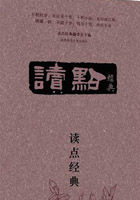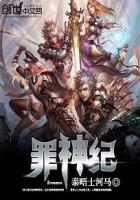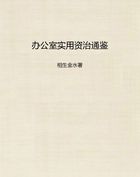In the Republic of Plato, Socrates treats of revolutions, but not well, for he mentions no cause of change which peculiarly affects the first, or perfect state. He only says that the cause is that nothing is abiding, but all things change in a certain cycle; and that the origin of the change consists in those numbers 'of which 4 and 3, married with 5, furnish two harmonies' (he means when the number of this figure becomes solid); he conceives that nature at certain times produces bad men who will not submit to education; in which latter particular he may very likely be not far wrong, for there may well be some men who cannot be educated and made virtuous. But why is such a cause of change peculiar to his ideal state, and not rather common to all states, nay, to everything which comes into being at all? And is it by the agency of time, which, as he declares, makes all things change, that things which did not begin together, change together? For example, if something has come into being the day before the completion of the cycle, will it change with things that came into being before? Further, why should the perfect state change into the Spartan? For governments more often take an opposite form than one akin to them. The same remark is applicable to the other changes; he says that the Spartan constitution changes into an oligarchy, and this into a democracy, and this again into a tyranny.
And yet the contrary happens quite as often; for a democracy is even more likely to change into an oligarchy than into a monarchy. Further, he never says whether tyranny is, or is not, liable to revolutions, and if it is, what is the cause of them, or into what form it changes.
And the reason is, that he could not very well have told: for there is no rule; according to him it should revert to the first and best, and then there would be a complete cycle. But in point of fact a tyranny often changes into a tyranny, as that at Sicyon changed from the tyranny of Myron into that of Cleisthenes; into oligarchy, as the tyranny of Antileon did at Chalcis; into democracy, as that of Gelo's family did at Syracuse; into aristocracy, as at Carthage, and the tyranny of Charilaus at Lacedaemon. Often an oligarchy changes into a tyranny, like most of the ancient oligarchies in Sicily; for example, the oligarchy at Leontini changed into the tyranny of Panaetius; that at Gela into the tyranny of Cleander; that at Rhegium into the tyranny of Anaxilaus; the same thing has happened in many other states. And it is absurd to suppose that the state changes into oligarchy merely because the ruling class are lovers and makers of money, and not because the very rich think it unfair that the very poor should have an equal share in the government with themselves. Moreover, in many oligarchies there are laws against making money in trade. But at Carthage, which is a democracy. there is no such prohibition; and yet to this day the Carthaginians have never had a revolution. It is absurd too for him to say that an oligarchy is two cities, one of the rich, and the other of the poor.
Is not this just as much the case in the Spartan constitution, or in any other in which either all do not possess equal property, or all are not equally good men? Nobody need be any poorer than he was before, and yet the oligarchy may change an the same into a democracy, if the poor form the majority; and a democracy may change into an oligarchy, if the wealthy class are stronger than the people, and the one are energetic, the other indifferent. Once more, although the causes of the change are very numerous, he mentions only one, which is, that the citizens become poor through dissipation and debt, as though he thought that all, or the majority of them, were originally rich. This is not true: though it is true that when any of the leaders lose their property they are ripe for revolution; but, when anybody else, it is no great matter, and an oligarchy does not even then more often pass into a democracy than into any other form of government. Again, if men are deprived of the honors of state, and are wronged, and insulted, they make revolutions, and change forms of government, even although they have not wasted their substance because they might do what they liked- of which extravagance he declares excessive freedom to be the cause.
Finally, although there are many forms of oligarchies and democracies, Socrates speaks of their revolutions as though there were only one form of either of them.















